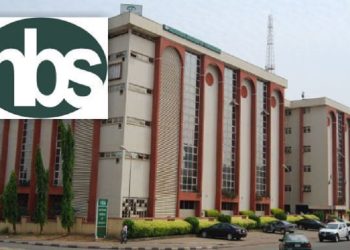The Federal Government has reportedly deducted a total of over N415 billion from state government allocations to service their external loans between 2019 and 2023, as revealed by findings from Researchers.
Data from the Federation Account Allocation Committee Disbursement reports, published by the National Bureau of Statistics, disclosed these deductions made from state government allocations from the Federation Account.
The deductions were made under a legal framework managing the federation account, which allows funds to be shared under three main components: statutory allocation, Value Added Tax distribution, and derivation principle.
An analysis of the report indicated that the deductions incurred by the states were N57 billion in 2019, N74 billion in 2020, rising to N86.2 billion in 2021, N78 billion in 2022, and N120.01 billion as of December 2023. This significant increase of 110 percent underscores the country’s substantial debt burden amidst declining revenue.
Lagos State emerged as the most affected state by these deductions, with approximately N131.1 billion deducted for external debt servicing, followed by Kaduna with N45.85 billion, and Cross River with N21.59 billion.
Other states like Oyo, Rivers, Ogun, and Edo had amounts ranging from N18.25 billion to N10.92 billion deducted, while Borno, Yobe, and Zamfara were the least affected with deductions ranging from N1.55 billion to N2.1 billion.
It was observed that the total amount deducted remained mostly fixed throughout the year, except for January and February.
Despite these hefty debt servicing deductions, the federal government has continued to obtain loans to finance its expenditures. A report revealed that the government borrowed a total of N4.94 trillion from domestic sources in the first six months of President Bola Tinubu’s administration, indicating a significant reliance on loans.
During this period, domestic debts surged by N4.94 trillion from N48.3 trillion in June 2023 to N53.3 trillion by December 31, 2023. Additionally, Nigeria spent N7.8 trillion to service its debt obligations in 2023, marking a 121 percent increase compared to the previous year.
Further analysis of the domestic debts showed that the government borrowed N2.29 trillion from the FGN bonds market, N1.79 trillion from treasury bills, N8.47 billion from savings bonds, N350 billion in Sukuk loans, and N549.02 billion from promissory notes.
Despite promises made by the Tinubu administration to reduce borrowing and focus more on increasing revenues, the increased debt levels paint a contradictory picture, raising concerns about the sustainability of Nigeria’s fiscal policies.











